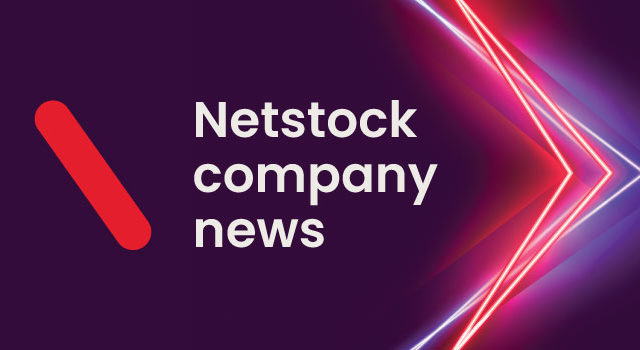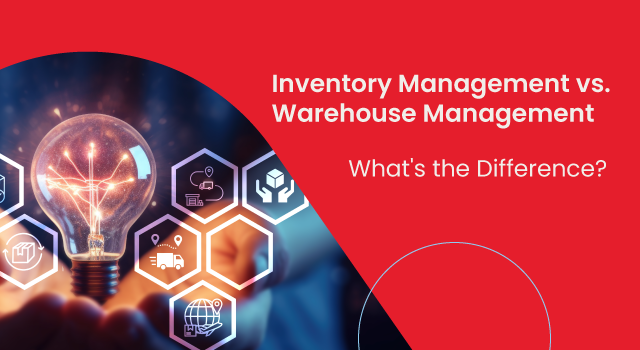Managing your business’s inventory can feel like walking on a tightrope. Fall to one side of the rope, and you risk sinking capital and resources into too much stock. Slip down the other side and you don’t have enough stock on hand to meet demand, leading to missed opportunities and unhappy customers.
Finding a happy medium is non-negotiable if you aim to position yourself in a highly competitive global economy and meet fluctuating market demand. One valuable area of your business you should streamline to achieve this balance is your inventory management. Efficient inventory management can transform your supply chain and improve your financial health and operational efficiency.
General Benefits of Inventory Management
Inventory management can help you maintain a healthy, agile business that adapts to market dynamics and customer expectations. Let’s explore some of the specific advantages:
Reduction of stock-outs and overstock
Stock-outs and overstock situations can cause your business serious headaches and have far-reaching consequences, ranging from lost revenue to unhappy customers. Having too much stock on hand prevents your business from having capital tied up in redundant goods. Conversely, it also safeguards your business from missing out on sales because you don’t have enough stock available. Both scenarios create inefficiencies that harm your business’s overall financial health by either increasing carrying costs or losing potential revenue.
Enhancement of inventory accuracy
If your goal is to build a highly efficient supply chain then consider inventory management the foundation of this goal. Businesses can achieve near-perfect accuracy in stock levels by using sophisticated inventory management systems like Netstock. Under or over-ordering is a very costly mistake to make so having a reliable reflection of your stock on hand can empower you to reliably meet customer demands.
Profit maximization
The goal of almost every business is to turn a profit. So, naturally, you will want to grab every opportunity to maximize profits with both hands. Inventory management can help you maximize profits by streamlining operations and financial management in several ways:
- Reducing carrying costs: Effective inventory management can help you avoid the costs of storing unsold goods. These costs include warehousing fees, insurance, and taxes, all of which can eat into your profits.
- Improving cash flow: By keeping stock levels aligned with demand, you can avoid the financial drain of overstocking and reinvest capital into areas with potential for higher returns.
- Minimizing losses due to obsolescence and depreciation: Inventory that sits in storage can become obsolete or depreciate in value. This is especially true for FMCGs or industries affected by rapidly evolving technology. Smart inventory management ensures your products move more quickly through the supply chain and are less likely to end up gathering dust in your warehouse.
- Enhancing sales through better stock availability: It pays off to ensure that popular products are always readily available for purchase to reduce the likelihood of stock-outs. This availability has a direct impact on customer satisfaction and sales, as customers are more likely to purchase from you if you have the products they want available right away.
Data-Driven decision making
You don’t want to go in blind when buying stock—this is a surefire way to waste money. Instead, you should analyze sales patterns and consumer behavior to make informed purchasing decisions. Data-driven demand forecasting ensures your business only invests in stock with a high turnover rate to maximize ROI. Using data to inform decisions can also help you anticipate market changes and adjust your buying strategy accordingly.
Reduction in storage costs
It doesn’t make financial sense to pay for storage space you don’t need! Holding less stock means you don’t need to fork out for extensive warehouse space, saving you money you’d otherwise be spending on rent, utilities, and insurance.
Benefits of inventory management software when integrated with ERPs
Want to kick your operational efficiency up a notch? Streamline your business operations effortlessly by integrating your inventory management software with Enterprise Resource Planning (ERP) systems. Optimize stock levels, reduce costs, and improve operational efficiency with access to real-time data.
How does inventory management software integrate with ERP systems?
Seamless data flow and synchronization between inventory management software and ERP systems enable accurate inventory updates across all departments, fostering better visibility, decision-making, and operational efficiency.
How Netstock integrates with ERP systems?
Netstock, a leading supply and demand planning software provider, offers robust integration capabilities with over 60 leading ERP systems. Netstock is purpose-built to automatically convert raw ERP data into predictive insights to drive confident decision-making. Netstock supports the integration of popular ERP systems such as NetSuite, SAP Business One, Microsoft Dynamics, and more.
The benefit of inventory management software and ERPS for your business:
Streamlined operations and data consistency
It is an impossible task to streamline your operations if data is inconsistent across your departments. If sales has one data set and finance works off another, you’re going to have a major disconnect between departments. Having all your teams work from the same data set can eliminate inconsistencies that lead to inefficiency and mistakes. When information flows freely across departments, operational processes like buying stock, fulfilling orders and planning production becomes a whole lot more streamlined.
Enhanced forecasting and planning capabilities
Your ERP system can feed real-time data into the inventory management software to give you up-to-the-minute data to work off of. This data can be used to develop highly-accurate forecasting models that are more adept at predicting demand. This level of precision gives you the flexibility to adjust your inventory levels proactively to meet anticipated changes in the market.
Real-time inventory tracking and reporting
Real-time tracking gives you a minute-by-minute look into your inventory status. Knowing exactly where your inventory stands is non-negotiable if you hope to maintain optimal inventory levels. ERP systems offer comprehensive reporting tools to give you deeper insights into inventory trends for data-driven decisions.
Improved supplier and customer relationships
Your suppliers will grow frustrated if you’re continually placing rush orders due to poor demand planning. Accurate forecasts can help you purchase the right products at the right time at the best price. When you place orders last minute and rush delivery, you risk getting inferior stock, having good damaged during handling and transit, and often have to pay premium prices. If you’re continually disorganized, you may find suppliers do not prioritize your account or put much effort into maintaining the relationship. Placing orders timeously shows respect and gives you greater negotiating power to secure competitive prices and lead times.
Likewise, customers will be loyal to a business that readily meets their needs. If your poor planning results in long wait times to receive an order or they receive an inferior product because production was rushed, you’re going to have unhappy customers on your hands.
Cost reduction and increased profitability
Storing excess inventory can become a real drain on your finances, as we’ve already touched on above. In addition, if you have to replenish stock at the last minute, you often end up paying a lot more than you would have if you’d ordered at the right time, which ultimately slashes your profit margins.
Benefits of a cloud-based inventory management system
Cloud-based inventory management systems offer an exciting way to oversee and control your stock with greater flexibility, efficiency, and security. Here’s why you should consider a cloud-based approach:
Accessibility and scalability
Nowadays, most of us work remotely or find ourselves away from the office for a considerable portion of the work week. Cloud-based systems can be accessed from anywhere, at any time – all you need is an internet connection. If your business operates from multiple locations, you can remotely monitor and manage your inventory from anywhere in the world. Cloud solutions are highly scalable, allowing you to easily adjust your resources based on current needs without significant upfront investments.
Cost-Effectiveness
Cloud-based inventory management reduces the need for costly IT infrastructure like servers and other hardware. Traditional systems come with high capital expenditures whereas cloud-based systems offer a more predictable, subscription-based pricing model. This setup lowers ongoing maintenance costs and spreads expenses out over time to improve cash flow and financial management.
Enhanced security and reliability
Security is a top priority for cloud providers. They typically offer robust security measures that may be more advanced than what your business could afford independently. Data encryption, regular backups, and disaster recovery plans ensure that inventory data is protected and can be quickly restored in case of an emergency. Cloud systems are incredibly reliable with high uptime guarantees which means you can depend on your inventory system to be available whenever you need it.
Improved collaboration and integration
Cloud-based systems tend to be easier to integrate with other business tools and platforms, enhancing collaboration across departments. Whether it’s integrating with ERP systems, CRM software, or supply chain management tools, cloud-based inventory management systems offer APIs and built-in integrations that streamline workflows and data consistency across the board.
Real-Time updates and innovations
Cloud-based systems undergo regular updates and improvements without disrupting your business. These updates often include new features and functionalities that can further optimize inventory management practices. This means your business can benefit from new technology without additional costs or effort involved in manual upgrades.
The benefits that AI can have for inventory management
Artificial Intelligence (AI) technology is reshaping how businesses manage their inventory by offering transformative benefits that enhance efficiency and strategic decision-making. Here’s how AI is revolutionizing this important business function:
Predictive analytics for demand forecasting
AI processes vast amounts of data in record time, including past sales, market trends, and even external factors like weather conditions. It uses this information to predict future demand with remarkable accuracy. Advanced forecasting abilities empower your business to accurately predict market trends, optimize inventory levels, and avoid allocating capital to unnecessary expenses.
Automated reordering and stock optimization
AI can automate the reordering process through its sophisticated algorithms to keep inventory at optimal levels without any manual intervention.
Enhanced decision making
AI provides actionable insights based on real-time data analysis to help you make quicker and more informed decisions. AI-driven insights help streamline operations and improve responsiveness to market changes, whether you’re adjusting inventory levels or reallocating resources.
Reduction in human error
People make mistakes – that’s what makes us human and not robots. AI analyses complex data sets and automates routine tasks to lower the risk of human error. This improves accuracy while also enhancing your overall operational reliability.
Dynamic pricing and inventory management
AI can also assist in dynamic pricing strategies by analyzing inventory levels, customer demand, and market conditions. You can maximize your profits by adjusting your prices in real-time in response to the current market conditions and inventory status.
Improved supplier and inventory performance analysis
AI tools can analyze performance data across the supply chain to identify bottlenecks, assess supplier reliability, and optimize inventory distribution. This holistic view enables you to refine your procurement strategy and improve overall supply chain efficiency.
Integrating AI software into inventory management processes will streamline operations and provide a competitive edge by enabling your business to react quickly to changing market conditions. As AI technology continues to evolve, it’s set to further enhance the capabilities of inventory management.
Key takeaways: harnessing the power of inventory management systems
You must be one step ahead of your competition to succeed in a global marketplace. Inventory management lies at the heart of maintaining a competitive advantage through increased profitability, optimized inventory levels, and data-driven decision-making. Modern inventory management systems offer advanced functionality with ERP integrations, cloud-based systems, and AI automation, giving you the tools to manage your inventory like never before.
Investing in these technologies is a strategic business decision that can define your ability to compete and thrive in our global economy. If you’re ready to enhance your inventory management practices, explore Netstock’s comprehensive Inventory Management Solutions, designed to streamline your operations, reduce excess stock or stock-outs and improve your market responsiveness.




